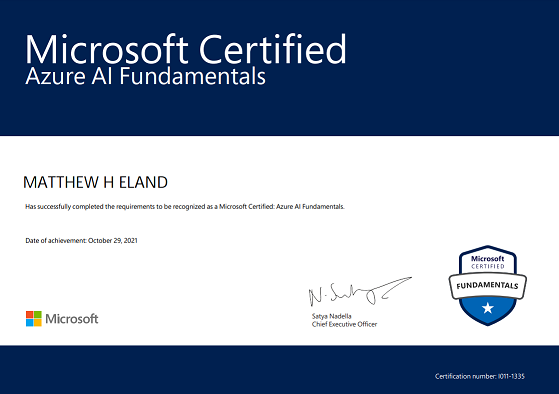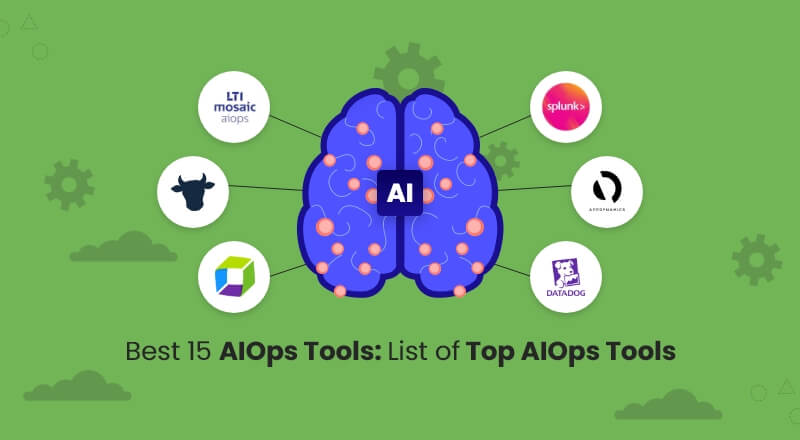The rise of remote work and hybrid work models has led to a surge in demand for cloud storage solutions that can handle the increased volume of data and facilitate collaboration across dispersed teams. While this shift has brought many benefits, it’s also highlighted the importance of choosing a cloud storage provider that offers robust security features and reliable performance. In this comprehensive guide, we’ll explore the best cloud storage for business, helping small business owners navigate the myriad of options available to them.
Toc
- 1. Why Cloud Storage is Essential for Small Businesses
- 2. Key Features to Consider When Choosing the Best Cloud Storage for Business
- 3. Top Cloud Storage Providers for Small Businesses
- 4. Related articles 01:
- 5. Security and Privacy Considerations for Cloud Storage
- 6. Addressing Security Concerns
- 7. Choosing the Right Cloud Storage Solution for Your Business
- 8. Related articles 02:
- 9. Emerging Trends in Cloud Storage
- 10. Frequently Asked Questions
- 11. Conclusion
Why Cloud Storage is Essential for Small Businesses

The advantages of cloud storage for small businesses are plentiful. Transitioning to a cloud-based system can significantly enhance operational efficiency and data management. Here are some critical benefits:
Increased Productivity: Cloud storage allows teams to access files from any location, at any time, using various devices. This flexibility streamlines workflows and reduces time spent on file management, ensuring that employees can maintain productivity regardless of their work environment.
Enhanced Collaboration: Many cloud storage platforms come equipped with collaboration tools that enable teams to work together in real-time. For example, Google Drive offers real-time co-editing, allowing multiple users to work on a document simultaneously. Dropbox offers shared folders, allowing teams to access and collaborate on files collectively. Microsoft OneDrive integrates with Microsoft Teams, enabling seamless communication and collaboration within a single platform.
Improved Data Security: Cloud storage providers typically employ robust encryption techniques, both in transit and at rest, to protect sensitive data. For example, Google Drive uses 256-bit Advanced Encryption Standard (AES) encryption for all data stored and transferred. Additionally, companies should look for providers with certifications like HIPAA for healthcare data or GDPR for European data protection compliance, ensuring they meet industry-specific security standards.
Scalability and Flexibility: Unlike traditional on-premises storage, cloud storage eliminates the need for businesses to invest in expensive hardware upgrades as their data storage needs grow. Cloud providers manage the infrastructure, ensuring scalability and flexibility without requiring significant upfront capital expenditure. This allows businesses to adapt to changing data storage requirements without significant financial burdens.
Cost-Effectiveness: Many cloud storage services operate on a pay-as-you-go model, which means you only pay for what you use. This eliminates the high upfront costs associated with traditional on-premises storage solutions, making cloud storage a more budget-friendly option for small businesses.
Key Features to Consider When Choosing the Best Cloud Storage for Business

Selecting the right cloud storage solution for your business involves careful consideration of various features. Below are the key factors to keep in mind:
Storage Capacity
Evaluate your current data storage needs and anticipate future growth. Ensure that the cloud storage provider can accommodate your requirements without limitations. Consider the types of files you will be storing and the overall volume of data expected.
File Sharing and Collaboration
Look for cloud storage solutions that facilitate easy file sharing and real-time collaboration. Features such as version history, co-authoring capabilities, and user permissions can significantly enhance your team’s collaborative efforts.
Data Security and Privacy
Prioritize providers that offer robust data encryption both in transit and at rest. Ensure that they have granular access controls to manage user permissions and protect sensitive information. Compliance with industry regulations, such as HIPAA or GDPR, is also crucial for maintaining data integrity.
Backup and Disaster Recovery
Examine the backup and disaster recovery options available with the provider. In case of unexpected events, such as hardware failures or cyber incidents, having a reliable backup plan is essential for minimizing downtime and safeguarding your data.
Integration and Compatibility
Consider how well the cloud storage solution integrates with the software and tools your business already uses. Seamless integration can improve efficiency and streamline workflows, making it easier for your team to access and manage files.
Pricing and Support
Analyze the pricing structures of different providers, including any free tiers or scalable options that fit your budget. Additionally, evaluate the level of customer support available to assist you in resolving any issues that may arise.
Top Cloud Storage Providers for Small Businesses

When searching for the best cloud storage for business, several providers stand out due to their robust features, competitive pricing, and reliable performance. Here’s a look at some of the top options available:
2. https://kalimbatran.com/mmoga-the-best-shared-hosting-for-bloggers-and-content-creators-in-2024
5. https://kalimbatran.com/mmoga-desktop-cloud-hosting-for-accounting-firms-a-comprehensive-guide
Google Drive
Google Drive is integrated with the Google Workspace suite, offering a comprehensive range of cloud-based productivity tools. Its powerful collaboration features, such as real-time co-authoring and version control, make it an appealing choice for businesses. However, be mindful of the limitations in free storage capacity.
Dropbox
Renowned for its user-friendly interface, Dropbox provides seamless file syncing across devices. Its strong file sharing and collaboration capabilities make it a popular choice for small businesses. Although Dropbox has a generous free tier, larger storage plans can be more expensive compared to competitors.
Microsoft OneDrive
OneDrive is tightly integrated with the Microsoft 365 suite, making it an efficient cloud storage solution for businesses already using Microsoft products. It offers affordable pricing and reliable performance, although its collaboration features may not be as advanced as those of Google Drive.
Box
Box stands out with its unique combination of cloud storage and collaboration tools, including an unlimited storage plan. This makes it particularly attractive for small businesses with growing data storage needs. However, the pricing for the unlimited plan can be higher than some other options.
PCloud
pCloud offers secure and reliable cloud storage with a strong emphasis on privacy and data protection. Its intuitive interface and robust features make it suitable for businesses looking for a secure storage option.
Sync-com
Sync.com provides end-to-end encrypted cloud storage, ensuring that your data remains private and secure. This platform is ideal for businesses that prioritize security and confidentiality.
SpiderOak
SpiderOak focuses on zero-knowledge encryption, ensuring that only you have access to your data. This makes it a compelling choice for businesses that handle sensitive information and require strict security measures.
Tresorit
Tresorit is known for its secure file sharing and collaboration capabilities, offering end-to-end encryption. It is an excellent option for businesses that require a high level of data protection and compliance.
Security and Privacy Considerations for Cloud Storage

As you transition to a cloud-based storage solution, prioritizing security and privacy is paramount. Here are some considerations to keep in mind:
Data Encryption
Choose cloud storage providers that offer robust encryption for data both in transit and at rest. This will help protect your sensitive information from unauthorized access.
Access Controls
Ensure that the provider offers granular access controls, allowing you to manage user permissions effectively. This feature helps restrict access to confidential files and information.
Compliance Certifications
Verify that the cloud storage provider complies with industry-specific regulations, such as HIPAA for healthcare businesses or GDPR for those operating in the European Union. Compliance is essential for maintaining data integrity and avoiding legal issues.
Data Backup and Disaster Recovery
Implement a comprehensive data backup and disaster recovery plan. Regular backups will ensure that your business-critical information can be quickly restored in the event of hardware failures, cyber incidents, or natural disasters.
Addressing Security Concerns
While cloud storage offers numerous advantages, concerns about data security remain. Some businesses may worry about the potential for data breaches or unauthorized access to their sensitive information. However, reputable cloud storage providers implement stringent security measures, including encryption, access controls, and compliance certifications. It’s crucial to choose a provider with a proven track record of security and to implement appropriate security practices within your organization.
Another concern is the potential loss of control over data stored in the cloud. While cloud providers offer various tools for managing data access and permissions, businesses may feel less in control of their data compared to storing it on their own servers. However, reputable providers offer clear terms of service and data ownership agreements, ensuring that businesses retain ownership of their data and have the right to access and manage it.
Choosing the Right Cloud Storage Solution for Your Business

To find the best cloud storage solution for your small business, follow these steps:
Assess Your Needs
Begin by evaluating your current and future data storage requirements. Consider factors such as file types, storage capacity, collaboration needs, and any specific compliance requirements related to your industry.
3. https://kalimbatran.com/mmoga-the-best-shared-hosting-for-bloggers-and-content-creators-in-2024
5. https://kalimbatran.com/mmoga-desktop-cloud-hosting-for-accounting-firms-a-comprehensive-guide
Evaluate Features
Compare the features and capabilities of different cloud storage providers. Focus on aspects such as file sharing, data security, backup options, and integration with your existing software tools.
Consider Your Budget
Analyze the pricing plans offered by each provider, weighing features and storage capacity against your available budget. Look for solutions that provide the best value for your money.
Test Free Trials
Take advantage of free trials or free tiers offered by cloud storage providers. This allows you to experience the platform firsthand and determine which solution is the best fit for your business.
Emerging Trends in Cloud Storage
The rise of artificial intelligence (AI) and machine learning (ML) applications has significantly increased the demand for cloud storage. These applications require massive amounts of data for training and processing, making cloud storage a crucial component of their infrastructure. Cloud providers are increasingly offering specialized storage solutions tailored for AI and ML workloads, providing the necessary performance and scalability for these data-intensive applications.
Edge computing, which involves processing data closer to its source, is becoming increasingly integrated with cloud storage. This approach allows for faster data processing and reduced latency, particularly for applications requiring real-time data analysis. Edge devices can store data locally and then synchronize it with the cloud for long-term storage and backup, creating a more distributed and efficient storage architecture.
Frequently Asked Questions

Q: What is the difference between cloud storage and cloud backup?
A: Cloud storage allows you to store and access files directly in the cloud, while cloud backup creates a separate copy of your data in the cloud for protection and recovery.
Q: How can I ensure my data is secure in the cloud?
A: Look for providers that offer strong encryption, access controls, and compliance certifications. Implement best practices such as using strong passwords and enabling two-factor authentication.
Q: What are some best practices for managing cloud storage?
A: Regularly review and clean up your cloud storage, delete unnecessary files, and organize your data into logical folders. Keep track of user access and revoke permissions when necessary.
Q: Can I access my cloud storage files offline?
A: Many cloud storage providers allow you to sync files to your local device, enabling offline access. Changes made offline will sync back to the cloud when you reconnect.
Q: What are some alternatives to traditional cloud storage providers?
A: Consider cloud-enabled network-attached storage (NAS) devices or self-hosted solutions like ownCloud or NextCloud for greater control over your data.
Conclusion
Selecting the best cloud storage for business is crucial for enhancing productivity, improving collaboration, and strengthening data security. By leveraging the cloud, you can streamline your operations and adapt to the evolving needs of your business. Take the time to assess your specific requirements, budget, and security considerations when evaluating cloud storage providers. With the right solution in place, you can empower your team to focus on driving your business forward. Explore the free trials offered by various providers to find the perfect fit for your business needs.















